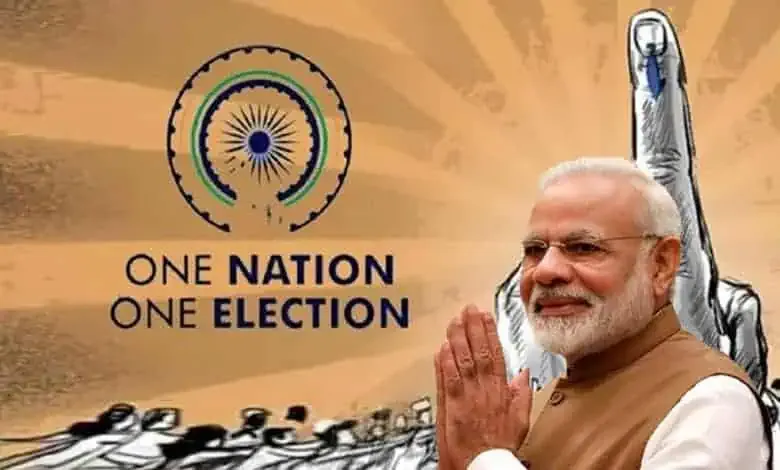
Date: December 12, 2024
Cabinet Clears ‘One Nation, One Election’ Proposal
‘One Nation, One Election’: A Step Towards Change
The long-debated concept of One Nation, One Election has taken a significant leap forward as the central cabinet, led by Prime Minister Narendra Modi, approved the proposal to conduct simultaneous elections across India.
The government plans to introduce a bill during the ongoing winter session of Parliament to take this initiative forward. This decision marks a pivotal step in reshaping the election framework in the country.
Key Developments and Report Insights
A committee led by former President Ram Nath Kovind submitted an 18,000-page report outlining the feasibility and strategy for simultaneous elections. The report proposed a two-stage plan:
- Simultaneous Lok Sabha and state assembly elections.
- Local body elections within 100 days of the primary elections.
This structured approach aims to streamline the election process while reducing costs and administrative challenges.
Support and Opposition: A Mixed Reception
The proposal has received backing from over 30 political parties, signaling widespread support. However, it faces criticism from others, including Congress, which strongly opposes the initiative.
Congress argues that a One Nation, One Election system is impractical for a diverse democracy like India. They stress that regional and constituency-specific election needs should take precedence over a uniform timeline. According to them, staggered elections ensure localized representation and better adherence to democratic principles.
‘One Nation, One Election’ Proposal: Next Steps in Parliament
The government is preparing for extensive consultations with political parties, state assembly speakers, and stakeholders to address concerns and gather inputs. A Joint Parliamentary Committee may be set up to review the bill and provide recommendations.
The winter session of Parliament will play a crucial role in shaping the future of this proposal, with key decisions expected soon.
Conclusion
The approval of the One Nation, One Election proposal marks the beginning of a potential transformation in India’s electoral system. While the initiative promises efficiency and cost-effectiveness, it also faces challenges from those advocating for region-specific election timelines.
As the government advances with wide consultations and discussions, the outcome of this historic proposal will determine the future of elections in India.